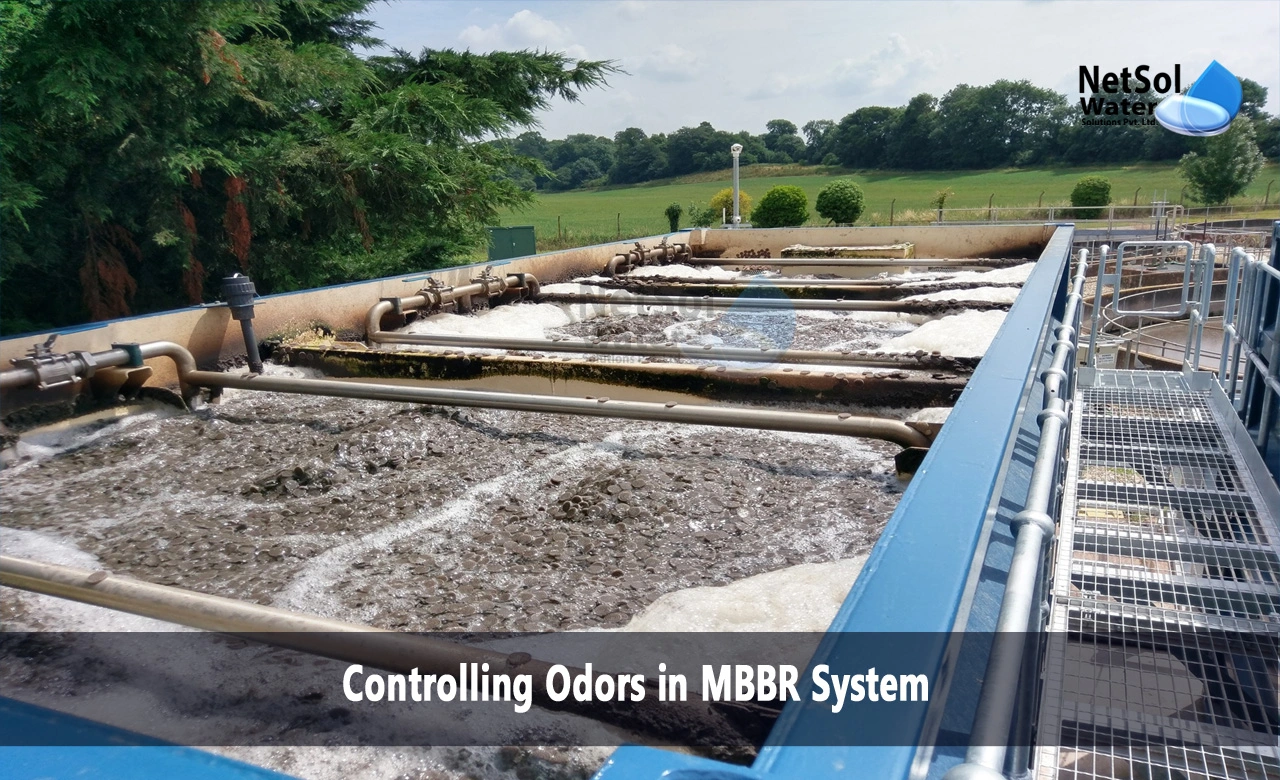How to Control Odors in MBBR System?
MBBRs (moving bed biofilm reactors) are a type of wastewater treatment system that use small plastic carriers that move around in the reactor to support the growth of biofilms. The biofilms help to break down organic matter and nutrients in the wastewater. MBBRs are compact and effective at removing contaminants. However, a common issue with MBBRs is odor production.
Causes of Odor Production
Several factors can contribute to odor issues in MBBRs:
1- Hydrogen sulfide gas - This gas with a rotten egg smell is produced when sulfate is reduced to sulfide by sulfate-reducing bacteria under anoxic conditions. This happens when oxygen levels are too low.
2- Nitrogen gas compounds - At low oxygen levels, denitrification of nitrate and nitrite forms nitrogen gases like ammonia and nitrogen gas, which have strong unpleasant smells.
3- Volatile fatty acids - Fermentative bacteria produce these smelly fatty acid compounds like butyrate and valerate due to excess organics.
These malodorous compounds can offgas from the reactor into the surrounding environment and cause annoyance and complaints. Therefore, odor control strategies are necessary.
Odor Control Strategies
A variety of methods can help mitigate odors from MBBR systems:
1. Aeration Control
Carefully controlling aeration levels is important to limit anoxic zones and the resulting release of hydrogen sulfide and nitrogen gas while still removing organics. Dissolved oxygen sensors coupled with adjustable aerators can provide close monitoring and precision aeration. Periodic shutdown of aerators may be useful as well.
2. pH Management
Maintaining pH above neutral (pH 7+) helps convert dissolved hydrogen sulfide into ionic hydrogen sulfate to reduce offgassing of hydrogen sulfide. Adding bases like lime or sodium hydroxide can accomplish pH control.
3. Nutrient Balance
Excessive organics release should be prevented through proper nutrient balance to limit fermentative volatile fatty acid production. Close COD: nutrient monitoring helps achieve this. Strategic carbon redirection may also help.
4. Biofilters
Offgas vented from the MBBR can be routed through an auxiliary biofilter packed with organic media supporting aerobic microbes that degrades odor compounds before venting to the air shed. Combinations of wood chips, compost, peat moss and other media can remove a wide variety of odor molecules in this final polishing step.
5. Adsorption Media
Packing towers or filter beds containing adsorptive media like activated carbon, zeolite pellets, dry scrubbing products or similar materials offer another way to purify vented offgas before atmospheric release by trapping odor compounds. Periodic media replacement maintainsmaximum odor adsorption capacity.
6. Chemical Scrubbers
Chemical scrubbing systems with caustic soda, hydrogen peroxide, potassium permanganate or proprietary formulations help to neutralize and destroy odor compounds by oxidation or alkaline degradation as gases are bubbled through. Combinations of chemicals can maximize removal across many compounds.
With a tailored application of these approaches taking into account cost, existing infrastructure and odor profile, significant reductions in MBBR odor issues can be achieved. Monitoring odor levels at property boundaries provides important feedback on control efficacy.
Conclusion
Malodors are a common nuisance problem with MBBR wastewater treatment systems. Through careful control of dissolved oxygen, pH, nutrients and organic levels along with deploying auxiliary air handling technologies like biofilters, adsorptive media beds or chemical scrubbers, odor emissions can be substantially reduced from MBBR facilities to prevent annoyances and complaints. A multimedia odor treatment approach customized to the characteristics of the MBBR offers the best chance for success. With proper implementation, MBBRs can operate as effective wastewater treatment with minimal observable odors.
Do you need an advice or assistance on selecting the best water and waste water treatment unit? We have solutions for all your problems!
Let us know your problem, our experts will make sure that it goes away.
For an assistance or related query,
Call on +91-965-060-8473 Or write us at enquiry@netsolwater.com



